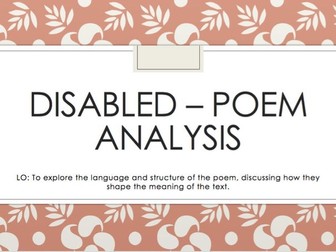GCSE English Language Text Anthology & Mock Papers
<p>I work in FE so have the ability to choose the texts I wish to teach for the AQA English Language GCSE Papers 1&2. I have put together an anthology of all the texts I will be covering in 2022-23, as well as created mock papers for each text/set of texts.</p>
<p>Some mock papers I have pinched from other sources or used them as inspiration. The rest have been created by myself so please do use them as you wish for your own revision.</p>
<p>I have also included a SMART target page for each paper at the end of each section of the anthology, a notes section for students to jot down ideas as they go etc.</p>
<p>Hopefully this might save some teachers some valuable time! I have put a picture up of the Contents so you can see what texts I have chosen to teach and have practice mock papers for etc.</p>




